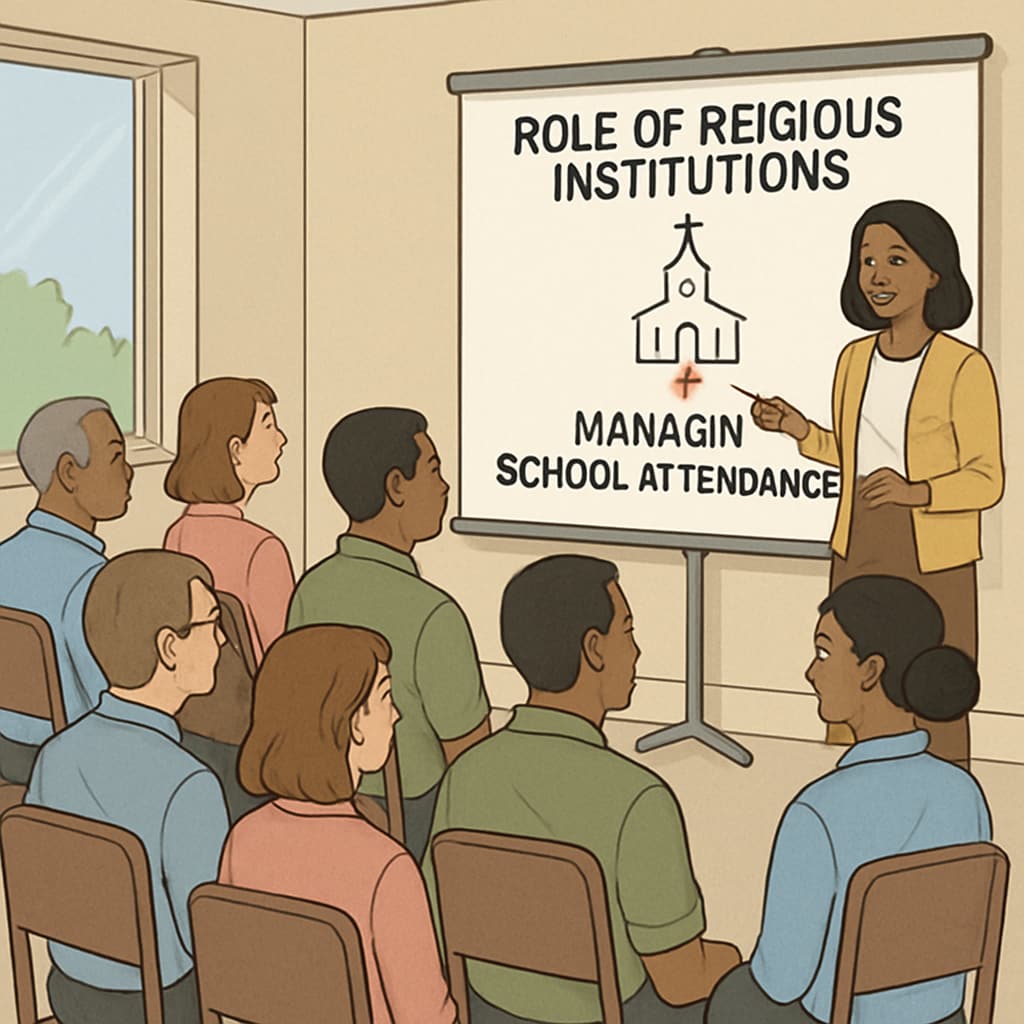Strict school attendance policies, including disciplinary measures for absences and the involvement of religious institutions, are increasingly controversial. As schools enforce stringent policies like the 72-hour absence rule, many families find themselves navigating a complex system that often feels at odds with their autonomy. This article examines the challenges posed by these policies, including the rationale behind their design and the contentious role of religious organizations in behavior correction, while advocating for a more compassionate and flexible framework.
The Rationale Behind Strict Attendance Policies
Schools often implement strict attendance policies to promote accountability, reduce truancy, and ensure that students remain engaged in their education. The 72-hour absence rule, commonly seen in K12 schools, is one such regulation. Under this policy, students must provide documentation for absences within three days, or risk penalties ranging from detention to academic repercussions. While this approach may discourage casual absenteeism, it often fails to account for legitimate reasons such as illness, family emergencies, or special circumstances.
For example, parents may face difficulties obtaining medical notes within the specified timeframe, particularly for minor illnesses that do not require a doctor’s visit. Additionally, the policy may disproportionately impact families with limited access to healthcare or flexible work schedules. As a result, the rule can unintentionally add stress to families already dealing with challenging situations.

Religious Intervention in Attendance-Related Disciplinary Measures
One of the more contentious aspects of strict attendance policies is the involvement of religious institutions in student behavior correction. In some cases, schools partner with churches or other religious organizations to provide counseling or intervention programs aimed at improving attendance. While these initiatives may have good intentions, they raise important questions about inclusivity and the separation of education and religion.
Critics argue that such partnerships may alienate families who do not share the same religious beliefs or who prefer secular approaches to addressing behavioral issues. On the other hand, proponents claim that religious organizations can offer valuable mentorship and moral guidance. Regardless of perspective, it is clear that integrating religious elements into school policies must be handled with sensitivity to ensure that all students and families feel respected.

Promoting a Balanced and Inclusive Attendance Management System
To address the challenges posed by strict attendance policies, schools must adopt a more balanced and inclusive approach. Here are several strategies to consider:
- Flexibility in Documentation Requirements: Extend deadlines for submitting absence documentation and accept alternative forms of proof, such as parental notes or phone calls.
- Supportive Resources: Provide families with access to counseling services, healthcare referrals, and other resources to help them navigate attendance-related challenges.
- Transparency in Policy Design: Engage parents and community members in the development of attendance policies to ensure they reflect diverse perspectives and needs.
- Secular Alternatives: Offer non-religious options for behavior correction programs to ensure inclusivity for all students.
By implementing these changes, schools can create a system that balances accountability with empathy, ultimately fostering a positive environment for both students and families.
In conclusion, strict attendance policies and their associated disciplinary measures often spark debates about the balance between educational management and family autonomy. As schools strive to uphold academic standards, they must also recognize the importance of flexibility, inclusivity, and sensitivity in their approach. By reevaluating rigid policies and exploring innovative solutions, educational institutions can better support the diverse needs of their communities.


